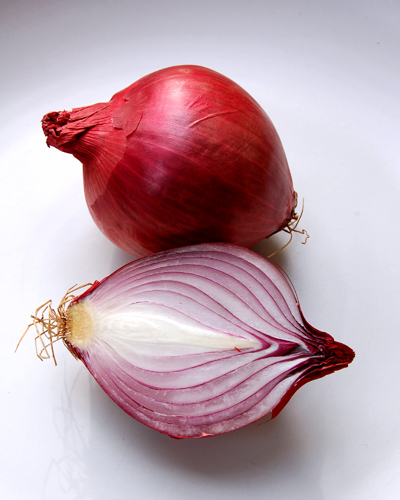The Amazing Health Benefits
of Drinking Lemon Water
After visiting some friends recently who drank copious amounts of water spiked with fresh organic limes and lemons from trees in their yard and freely offered this delicious concoction to all their guests, the following article reminded me of the value of our mutual dedication to planetary health and wellness through simple healthful remedies.
There are basic lifestyle habits that are important to incorporate into your daily life, and this is certainly one of them. However, we are talking about organic lemons that are tree ripened. If you are buying commercial lemons from the store, learn kinesiology and muscle test the lemons you buy so that you know one way or another whether the lemons you are purchasing are actually therapeutic for you.
“When life gives you a lemon... squeeze it, mix it with six ounces of distilled water and drink twice daily.”
The value of eating lemons is reported by Jethro Kloss in his book Back to Eden:
“The medicinal value of the lemon is as follows: It is an antiseptic, or is an agent that prevents sepsis [the presence of pathogenic bacteria] or putrefaction [decomposition of tissue]. It is also anti-scorbutic, a term meaning a remedy which will prevent disease and assist in cleansing the system of impurities.”
Due to the digestive qualities of lemon juice, symptoms of indigestion such as heartburn, bloating and belching are relieved. By drinking lemon juice regularly, the bowels are aided in eliminating waste more efficiently thus controlling constipation and diarrhea.
On page 659 of Back to Eden, Mr. Kloss points out that, “The lemon is a wonderful stimulant to the liver and is a dissolvent of uric acid and other poisons, liquefies the bile, and is very good in cases of malaria. Sufferers of chronic rheumatism and gout will benefit by taking lemon juice, also those who have a tendency to bleed, uterine hemorrhages, etc.; rickets and tuberculosis. In pregnancy, it will help to build bone in the child. We find that the lemon contains certain elements which will go to build up a healthy system and keep that system healthy and well. As a food, we find, owing to its potassium content, it will nourish the brain and nerve cells. Its calcium builds up the bony structure and makes healthy teeth.
“Its magnesium, in conjunction with calcium, has an important part to play in the formation of albumen in the blood. The lemon contains potassium 48.3, calcium 29.9, phosphorus 11.1, magnesium 4.4. Lemons are useful in treating asthma, biliousness, colds, coughs, sore throat, diphtheria, la grippe [flu or influenza], heartburn, liver complaint[s], scurvy, fevers and rheumatism.”
Since many people today suffer from what they used to call biliousness, it is important to edify our readers to the definition.
Biliousness -- 1. A symptom of a disorder of the liver causing constipation, headache, loss of appetite and vomiting of bile. 2. excess of bile; a bilious fever.
Why the lemon works so well
On page 19 of A.F. Beddoe's book “Biological Ionization in Human Nutrition,” he states that: “Man does not live off the food he eats but off of the energy that is produced from the food he eats.”
The energy you get from your food comes from the atoms and molecules of energy in your food. A reaction takes place as cationic food enters the digestive tract and encounters anionic digestive enzymes.
To explain further, an ion is part of a molecule con-atom or a group of atoms that carry an electrical charge. Ions which carry positive charges are “cations.” Lemons are considered to be anionic, having more electrons (negatively charged ions) of energy as compared to cations (positively charged ions) in their atomic structure. Saliva, hydrochloric acid, bile and the stomach's other digestive juices are also anionic.
Lemon is one of the only foods on the planet that has more anions than cations in its atomic structure.
When considering the electromagnetic properties of food Dr. Beddoe points out that all foods are considered cationic with the exception of fresh, raw lemon juice. Some have suggested that the reason fresh lemon juice is similar to digestive enzymes is due to the low amount of sulfur in lemons. It should be noted that pasteurized and packaged lemon juice is cationic and, therefore, ineffective as a health remedy.
Who Can Benefit From Lemon Water
Dr. Beddoe continues on page 194: “Lemon water is used in every person that can tolerate it. That is, if there is no allergy to lemon (a very few have a true allergy to lemon) and no active ulcers, then all adults and most children should use the lemon water. The purpose of the lemon is to:
provide a natural strengthening agent to the liver enzymes when they are too dilute.
The liver can make more enzymes out of fresh lemon juice than any other food element.
The lemon helps fix oxygen and calciums in the liver because it regulates blood carbohydrate levels which affect the blood oxygen levels.”
In the above book, Dr. Beddoe also cites an article by Dr. Michael Lesser on the medical promise of citric acid in “Anabolism, Journal of Preventive Medicine.” He uses this article to validate the value of using fresh lemon juice daily: “It appears that citric acid, the major carrier of biochemicals in the body's energy system, shows important promise, primarily because of its excellent properties as a chelator. Its ability to form soluble complexes with calcium offers major promise in the successful treatment of pancreatic stones and has also been employed to dissolve kidney stones. Since calcium deposits are of major significance in the much greater problem of hardening of the arteries, citric acid may possibly contribute to a safe and effective reversal of this widespread degenerative disease.”
Even though medical doctors are not currently employing lemon juice in the treatment of the above conditions, this article substantiates the fact that one of the benefits of fresh lemon water is the way the citric acid is able to act upon the body's systems differently than any other food.
Lemon Remedies Published by Jethro Kloss in Back to Eden
For sore throat, dilute lemon juice with water and gargle frequently. Dilute one-half lemon juice with one-half water. It is even better to use straight lemon juice.
A slice of lemon bound over a corn overnight will greatly relieve the pain.
A slice of lemon bound over a felon [pus formation on a finger joint] will not fail to bring the pus to the surface where it can be easily removed.
To relieve asthma, take a tablespoon of lemon juice one hour before each meal.
For liver complaints, the juice of the lemon should be taken in a glass of hot water one hour before breakfast every morning.
To break up la grippe [flu or influenza], drink a large glass of hot water with the juice of a lemon added, while at the same time have the feet in a deep bucket or other vessel of water with mustard added to it. The water should be deep enough to where it comes nearly up to the knees. Keep adding hot water to the patient's tolerance and until the patient begins to perspire freely (about 20-30 minutes). Be sure there is no draft on the person while this is done. The patient should be near a bed so he can get in it easily and avoid any danger of getting chilled. If convenient, a full hot bathtub would be good in place of the foot-bath. The lemon water should be taken every hour until the patient feels that all the symptoms of the cold are gone.
A teaspoon of lemon juice in half a glass of water relieves heartburn.
For rheumatism, one or two ounces of lemon juice diluted in water should be taken three times a day: one hour before meals and at bedtime.
In cases of hemorrhage, lemon juice diluted in water and taken as cold as possible will stop it.
Scurvy is treated by giving one to two ounces of lemon juice diluted with water every two to four hours.
In excessive menstruation the juice of three to four lemons a day will help check it. Best to take the juice of one lemon at a time in a glass of cold water.
Mr. Kloss explains how lemon juice can even help someone with stomach ulcers:
“How can one with an inflamed or ulcerated stomach partake in the juice? Would not a strong acid like that of the lemon act as an irritant? That would depend on how it was taken. If in quantity, yes. But to take it very weak at first [diluted sufficiently in water], it will cease to burn. The sufferer afflicted with ulcerated stomach has to use great perseverance to affect a cure, and it can be cured if care and patience is used. The gastric juice in the stomach is four times as strong as lemon juice.”
In these cases, I recommend one to two tablespoons of Aloe Vera Gel before the lemon water. Taking 500 mg. of Bromelin has also proven to be helpful.
Buying a sweet lemon
Some lemons are more sweet than others. A rule of thumb for selecting a lemon that is both sweet and high in mineral content, is to pick one that has a high specific gravity measurement and is heavy for its size. By comparing equal-sized fruit, the one with the greatest weight will have the most mineral content and sugar. A thick skinned lemon will not be as heavy as a thin skinned lemon and will not have the desired sweetness or mineral content.
The method I use to ensure the purchase of sweet lemons is to look at the stem end of the lemon. There are two ends on the lemon. One end has a point where the blossom started to grow; the other end has a stem or a dimple where the stem used to be located. On the stem end of a highly mineralized, sweet lemon, you will see little lines radiating out of the stem like sunbeams. These little lines can look like a star shaped structure and is called a calyx. The calyx may have three, four, five or more points to the star. The greater the number of points on the calyx, the higher the mineral content of the lemon.
How much lemon to use
If you are in good health and weigh less than 150 pounds, squeeze the juice of one half a lemon (one ounce) into a glass of purified water and drink this mixture twice a day (one whole lemon a day.) If you weigh over 150 pounds, squeeze the juice out of an entire lemon (two ounces) into a glass of purified water and drink this mixture twice a day (two whole lemons a day.) The lemon juice can be diluted more according to taste.
To help your body get the energy from the food you are eating, drink lemon water regularly. Next to drinking plain purified water, drinking lemon water daily is the most important thing you can do for your health.







